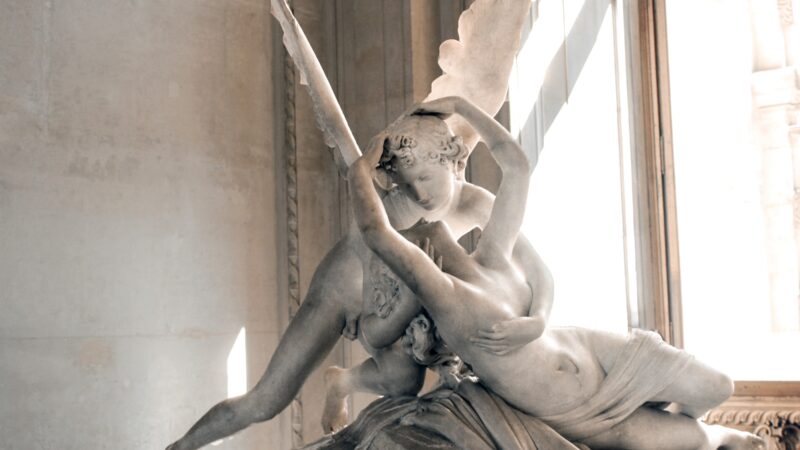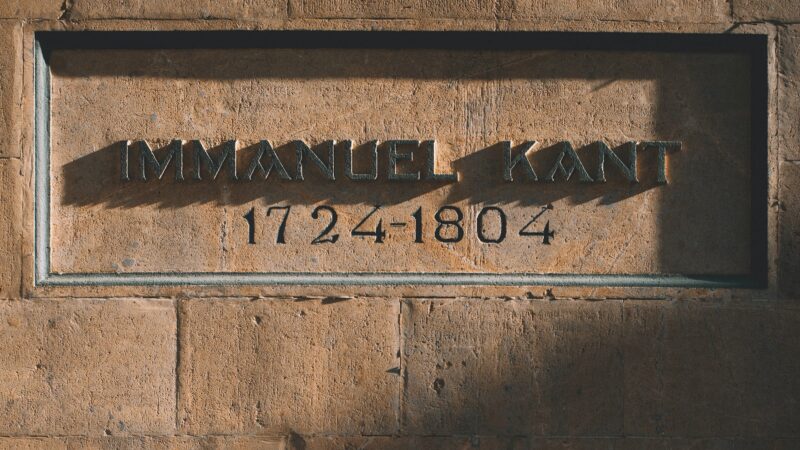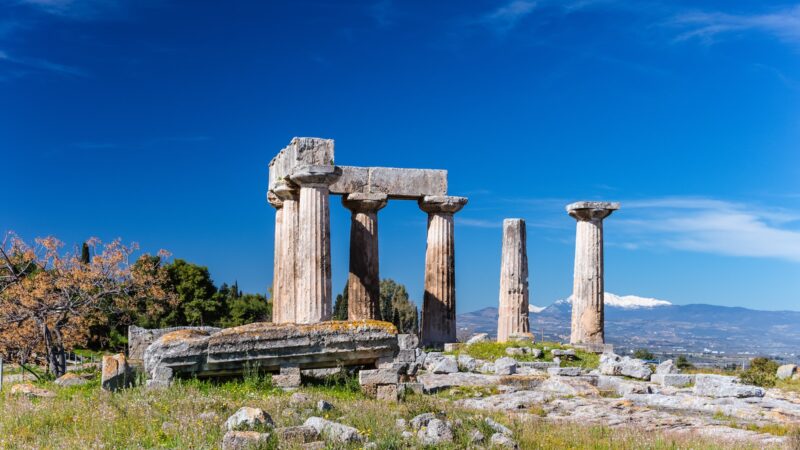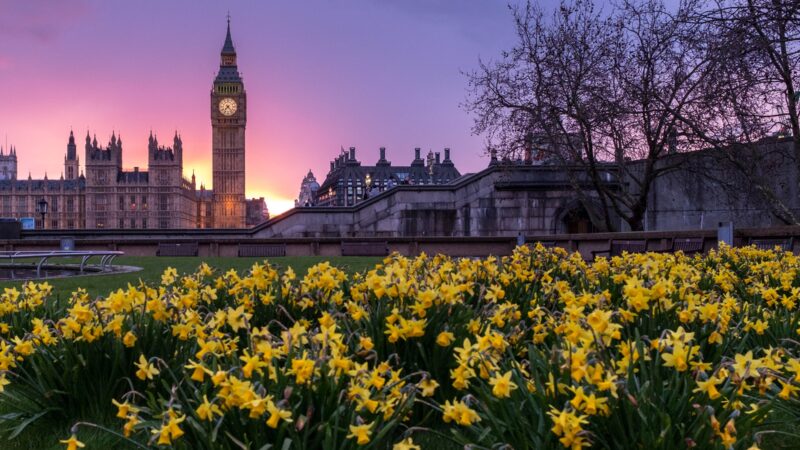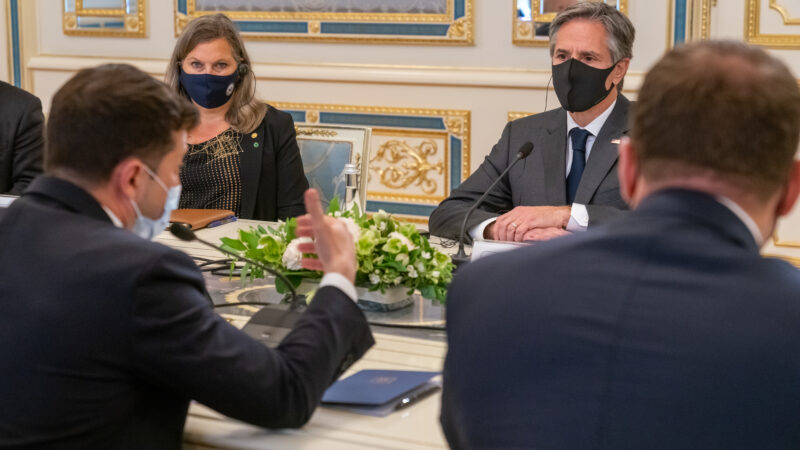Fact and Fortune: A Note on The Particular
Writing this article makes me feel guilty. Like a manic scientist hunched over a microscope, I am hunched over a keyboard, conducting research into pinpointing the unpinpointable. For decades, conservatives have disapprovingly commented on the widespread adoption of once-alternative socially liberal concepts and arrangements, lamenting the desacralization and deprivileging of more “traditional” outlooks. This is very much in step with classic political dynamics: Liberals will tell you “Yes”, Leftists will tell you “Yes, and more!”, and a conservative will tell you “No”. Whilst I generally agree with such disapproving commentary, I will not be contributing to it. Instead, I shall be addressing that which animates the conservative’s disapproval; stating what love is, rather than what is not, all while resisting its substitution with other concepts (pleasure, happiness, etc.) as has been done before. Consequently, I hope to form a fragment of a “moral-social vision” to which a conservative can forcefully say: “Yes”. Moreover, it should be prefaced that I do not care for contemporary fads, such as “making sense”.
Underpinning all human relationships lies an implicit and relative distinction between what is familiar and strange. Courtesy of the innate biological, geographical, and psychological limits of (for lack of a better term) the self, from birth to death most of humanity is a stranger; their existence is affirmed without personal interaction and their initial relation to the self is ambiguous. As proximity to the self transforms, so does the nature of the relationship – strangeness gradually fades away and familiarity increasingly emerges. However, whilst technically specific, the self is a mosaic; it is downstream from various approximations which give identity and demand obligation: the family, the local community, and the nation, all exist as approximations to what is familiar, stretching out towards the stranger.
In the most irremovable fundamental and primordial sense, the family and the self are the same, thus describing the family as a realm of the self, as opposed to what the self is, does not make sense. As such, the first approximation which exists beyond the self, the one more intimate and more familiar than the much wider community, as if it was Venus slotted between Mercury and Earth, is that of the Particular.
The Individual and The Particular are not totally distinct. Whilst technically different, a Particular cannot deny its necessary origins as an Individual, that is to say: certain residual characteristics of an Individual will remain within the Particular even when an Individual becomes Particular. The key commonality between the Individual and the Particular is that both are necessarily unique and singular; they both refer to one. The fundamental difference between the Individual and the Particular is therefore twofold: the nature of [the] reference, and the nature of [the] one.
The Individual One is strictly numerical, it concerns isolated quantity amid implied greater quantity. Conversely, The Particular One is non-quantifiable. It is not perceived mathematically, but in a qualitative and subjective manner; the self-realised reality that there can be no concept of greater quantity when concerned with the existence of something radically specific. However, bound up in the nature of [the] One is how it is referred to. Unlike the Individual, the Particular is realised by a person; it emerges, rising above individualised mass. In this regard, whilst the Individual is an impersonal concept, the Particular is deeply personal.
Facts are the unbending exoskeleton of reality. Hardly negative, they are nevertheless mere matters of being, they are acknowledged by all for the sake of all; they are granted and therefore taken for granted. On the other hand, Fortunes emerge from an incomprehensible conglomerate of probabilities. More than simply being, the total feasibility of Fortune’s non-existence gives it subjective value; to exist as it does makes it remarkable, as if it were a roaring fire in a field of snow. As such, the “impersonally perceived quantifiable” Individual constitutes an existential Fact, whilst the “personally perceived non-quantifiable” Particular constitutes an existential Fortune.
Like every conceivable Fortune, it is discovered through action. Ways colliding through distinct affirmations of life as part of civilised existence, the Particular incrementally emerges into view. The glamourous unthinking of the animal, lurking beneath such civilised folk, smoothens rough edges into idiosyncrasies. It is only during this way-splicing journey that one is eventually obstructed by the wretched bluntness of Fact. The Particular is particular. Made radically specific by intersections of time and space, The Particular is temporary. Mortality, granted and therefore taken for granted, is never acknowledged for its wretchedness until compared to the shining novelty of Fortune. Icarus, made ecstatic by the heights to which his wings could take him, is blighted by the unmissable sun and is reacquainted with reality. Realisation of temporality is the highest realisation of the Particular and thus the undoing of the Self’s tranquillity. It is because of this that all love is bittersweet. A volatile spirit, it wrestles to be total, to be free of its own contradictions; it is humanity’s purest extremity.
Unfortunately, contemporary notions of love have come to be dominated by material transaction, in which material things are exchanged for something in return all while being divorced from direction, tailored only to generalised individual mass rather than the Particular, Regardless of whether material transaction is a consciously cynical effort or just well-meaning naivete, it should be considered a perversion of the material’s true role of expression: the act of turning the immaterial into something material, internal motion into an external display. Even if both are in want, the former deals in expectations whilst the latter deals in hope. Consequently, given the ritualistic importance, just as one who wants to receive must be prepared to give, where one does not wish to give, one must refuse.
Far from pedanticism, there must be immovable details, actions, and sentiments which are confined to the realm of The Particular. If it lacks these, there is no such thing as a distinct romantic approximation; the Particular would cease to be particular at all. Hence why a private realm, knitted together by a veneer of secrecy and the consequent warding off transgressions is not only required, but the very essence of love. The contradiction of this private realm is that it can only be fully secured through public recognition; signifying that there are boundaries which those inside and outside cannot bend if the realm is to exist at all. It is the inability to reconcile this private realm with the world that lies beyond, especially the family and community, that produces the Romeo and Juliet tragedies we all intuitively understand.
At bottom level, these perversions stem from having been confronted by temporality which afflicts us all. Like madmen, they hurry to evade the inevitable. Impending fates, they make frenzied decisions, no sober consideration of what would do them better. Attempting to hoard the whole of humanity in your heart, being subject to the neurotic clamouring for more, made unawares that all will have so much less; you less of them, and them less of you. Just as a nation that attempts to contain the world within its borders does not enrich itself, and consequently makes a world in which the nation no longer exists.
Nobody makes a conscious decision to love, they simply do (on its own, it is Fact which precedes the Fortune of the Particular). It is those deluded folks who choose to act against love that engage in a conscious decision. Like building a dam to obstruct a coursing stream, it is a crude denial of motion. It is because of this motion that the emergence of the Particular cannot be reduced to a meticulous list of preferences. The mechanised procedure of romance has been attacked as a neutralising reconfiguration of love, implying it to be an organic development instead – which it is. If an organic something has stagnated it is either dead or on the verge of death – making compatibility the project, rather than the immediate gratification of love. Just as a flower’s idea of itself animates the contortions of its growth, giving clear form to lofty substance, the idea of two-minded unity is the grand project to which love draws its form and loyally commits its efforts. Unlike the machine which facilitates fleeting relations and heavy-handed intimacy, the Becoming force of love, that which sought to forge beyond the self and in the direction of the Particular, if found to be requited by life’s chances, necessarily reorients itself to go beyond life itself.
The afterlife exists as a Fact. Calling this afterlife “death” makes no difference. There are two certainties: our certain uncertainty of the exact nature of the afterlife and our absolute certainty of our heading there. Whether it’s the minds of men, eternal darkness, or literal new life, it matters not; there is a flipside to this state which gives this life so much meaning. The totality of the Particular and the fullness of heart it provides, ever-driving the two-minded unity, ushers the secret realm into existence, giving us a place not only within explicit life, but within implicit afterlife. Two radically specific souls, becoming one radically specific unit, find themselves undivided by death.
The first approximation, the most intimate and warmest flame, with correspondence to be earnestly followed up or to be dutifully waited on, mends the disjointed nature of life and afterlife. By forging a chain that can never be broken, mere existence is transformed into terrain traversing adventure. The ability to stare into the reaper’s eyes as if they were the eyes of the Particular; that is the essence of love. Never will the strange feel so familiar.

